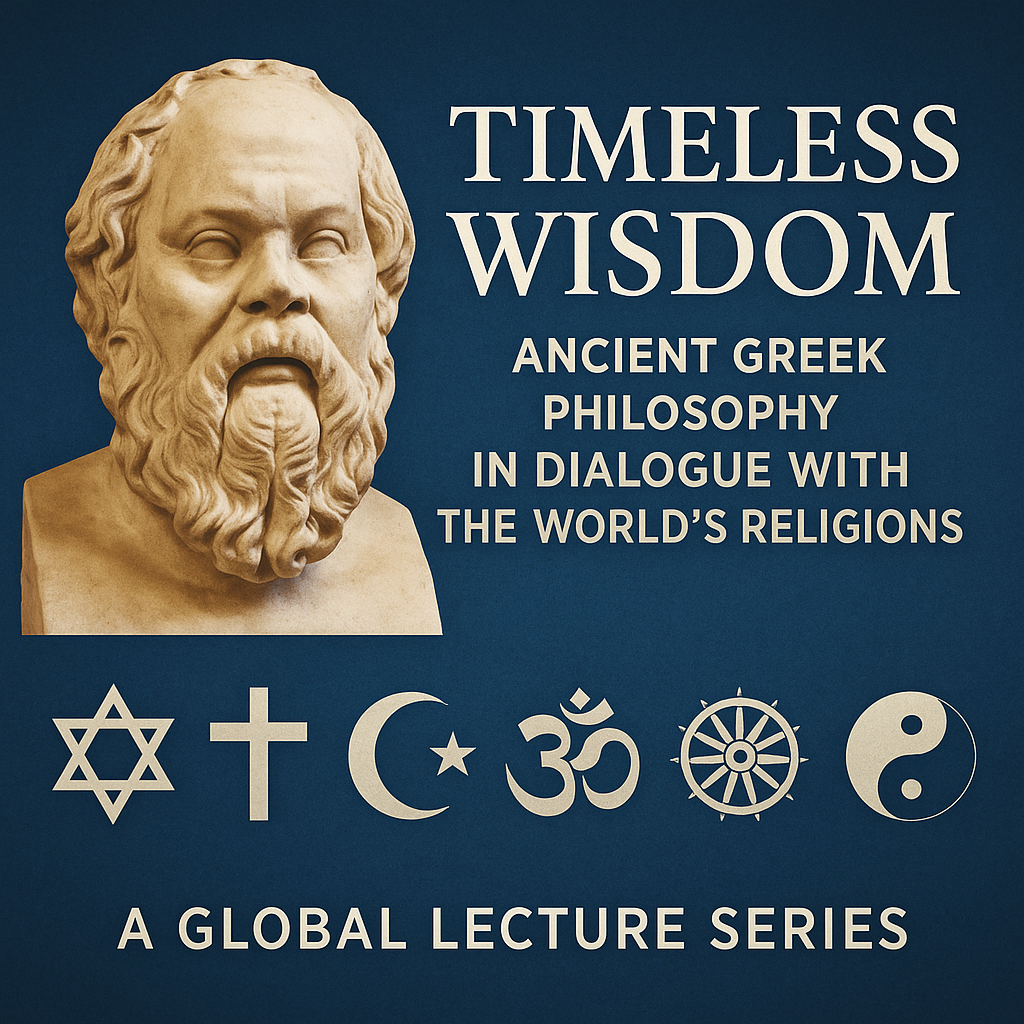Timeless Wisdom: Ancient Greek Philosophy in Dialogue with the World’s Religions

A global lecture series from HCC-SW
Ancient Greek philosophy is more than history—it’s a shared language of ethics. Timeless Wisdom brings scholars and communities together to show how ideas from Socrates, Plato, Aristotle, the Stoics and others resonate with Judaism, Christianity, Islam, Hinduism, Buddhism, and Confucianism. The result: a clear, actionable framework of common values—a “lingua franca” that helps people of every faith (and none) connect more easily and build bridges across cultures.
Light, welcoming, and a bit funny—on purpose.
You don’t need to be a scholar to join us. Each talk is delivered in a light, humorous, and accessible style—perfect for newcomers and especially meaningful for fellow Greeks who never had a chance to meet the classics at school. Expect practical takeaways you can use right away—and first-class material for at-home conversations with your children.
What to expect
- 53 sessions with leading professors worldwide, livestreamed in English (with captions) and available on demand.
- Each lecture pairs a Greek value (e.g., paideia, dikaiosynē, phronēsis) with parallels in major religions, revealing the common denominator that unites us.
- A concluding edited volume of transcripts—featuring lecturer bios and host-organization profiles—distributed to universities, cultural institutions, and public leaders.
- Special thematic events (e.g., Olympic ideals and εὐγενής ἄμιλλα ahead of LA 2028) that translate timeless ethics into today’s civic life.
Why it matters
In an age of polarization, this series offers a standard set of humane, time-tested principles—integrity, justice, moderation, compassion, civic friendship—that can guide families, schools, and public life. It’s a chance to rediscover our inheritance and use it as common ground across faiths and civilizations.
Who should join
Students and teachers, parents and teens, clergy and community leaders, policy makers and professionals—anyone who wants to move beyond silos and work from shared values.
Ways to participate
- Attend a live lecture (free registration).
- Host a session through your university or community organization.
- Nominate a lecturer or propose a topic.
- Partner/Sponsor to expand access, translation, and publication.
- Subscribe for updates on new talks, resources, and the final book.
Be part of the conversation that unites.
Together, we can show that a globalized value system already exists—clear enough to guide action, generous enough to welcome all.
Interested in hosting or partnering? Contact HCC-SW at
Sponsors
Communications Sponsors
Timeless Wisdom Event Calendar
19-Oct-2025 2:00 pm CST
Timeless Wisdom | Educational
Online Event
09-Nov-2025 2:00 pm CST
Timeless Wisdom | Educational | HCC Events
Online Event
08-Feb-2026 1:00 pm CST
Timeless Wisdom | Educational | HCC Events
Online Event
22-Mar-2026 2:00 pm CST
Timeless Wisdom | Educational | HCC Events
Online Event
26-Apr-2026 2:00 pm CST
HCC Events | Educational | Timeless Wisdom
Online Event
Full list of the Lectures.
As the different lectures will be scheduled, they will appear in the timeline. bookmark the page and come back for dates and times.
|
|
||||||||||||||||||||||||||||||||||||||||||||||||||||||||||||||||||||||||||||||||||||||||||||||||||||||||||||||||||||||||


